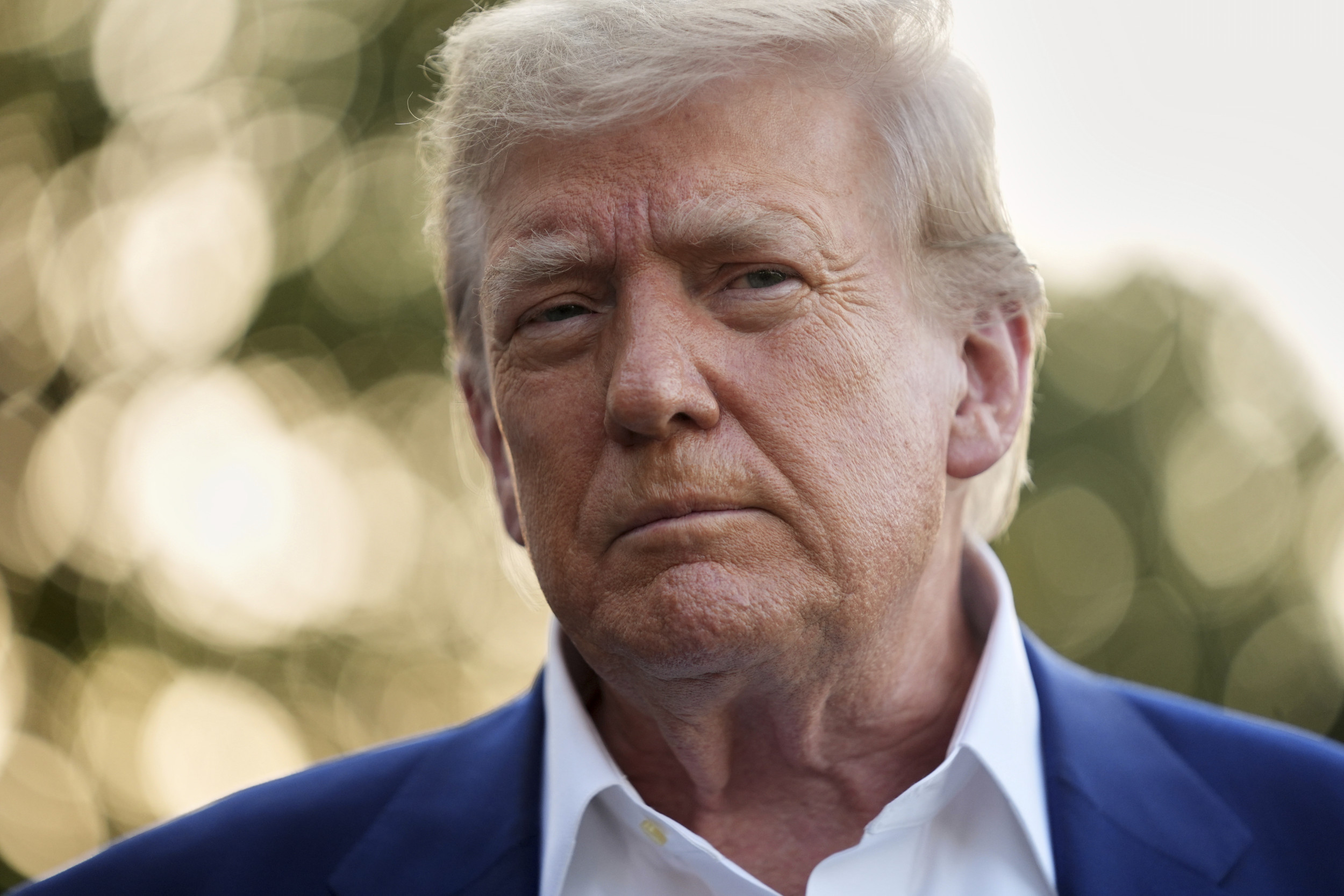
Business leaders’ confidence in the U.S. economy has halved since the beginning of the year, according to JPMorgan Chase & Co., as companies grapple with the impact of President Donald Trump‘s tariffs and broader geopolitical uncertainties.
The financial services firm’s latest Business Leaders Outlook Survey, released Wednesday, found that optimism for the economy fell to 32 percent in June from 65 percent in January. Additionally, 25 percent of respondents said they expect a recession to occur at some point this year, up from only 8 percent in January.
Why It Matters
Concerns over the trajectory of the U.S. economy have been fueled largely by Trump’s trade agenda, which has led to significant stock market volatility and heightened fears of rising costs for both businesses and consumers. However, these anxieties have been somewhat tempered by the current pause on reciprocal tariffs, as well as the temporary easing of trading tensions between the United States and China.
While the survey was largely conducted prior to the most recent escalation in the conflict between Israel and Iran and America’s entry in the form of target strikes over the weekend, this could contribute to these existing economic anxieties.
One expert told Newsweek that a re-escalation would represent “another adverse supply shock to the economy.”
What To Know
JPMorgan’s survey was conducted between June 4 and June 18, drawing responses from over 700 owners and executives representing middle-market businesses, defined as those with annual revenues ranging from $20 million to $500 million.
Four in 10 (44 percent) reported delaying their business plans to some extent this year, with 74 percent citing “policy uncertainty” as the reason for this decision. Of this group, 37 percent cited market volatility and shifts in customer demand, while 35 percent listed geopolitical events as a contributing factor.
Overall, the challenges highlighted by business leaders included uncertain economic conditions (55 percent), tariffs (41 percent), and revenue and sales growth (41 percent).
Evan Vucci/AP Photo
The results mirror those of the Conference Board’s recent report on CEO confidence, which saw a 26-point decline in the second quarter to 34. This fell further below the 50-point threshold, indicating more negative responses than positive, and reached the lowest level since the end of 2022.
The New York-based think tank noted that this was the steepest quarterly decline in the survey’s 48-year history. CEOs cited tariffs and geopolitical instability as the main sources of risk for their industries.
Tuesday also saw the release of the Conference Board’s latest Consumer Confidence Survey. This closely monitored gauge signals shifts in consumer sentiment and consumer spending, a major contributor to the nation’s economy.
The Consumer Confidence Index fell by 5.4 points in June to 93.0, despite consensus forecasts anticipating an improvement from May. The Present Situations Index, which measures consumers’ perceptions of current business and labor market conditions, also fell, while the short-term Expectations Index dropped to 69.0, well below the 80-point threshold.
The think tank said this “typically signals a recession ahead.”
“Tariffs remained on top of consumers’ minds and were frequently associated with concerns about their negative impacts on the economy and prices,” said Stephanie Guichard, senior economist for Global Indicators at The Conference Board.
What People Are Saying
Matt Sable, Co-Head of J.P. Morgan Commercial Banking, said: “Businesses are operating with caution in the current environment. Leaders are recalibrating where necessary to ensure they can continue to deliver for their clients and communities, highlighting their resilience and determination.”
Matthew Martin, U.S. senior economist at Oxford Economics, told Newsweek: “When uncertainty is high, there is a strong incentive to defer such major business decisions, whether investment or staffing, until the situation is clearer. This is a major reason to expect private fixed investment to decline this year, contributing to slower growth overall, and a slower pace of business hiring, which will slow the rise in real income growth (and therefore consumer spending).”
Martin added, “Rising Middle East tensions represent another adverse supply shock to the economy. While for now the worst of scenarios seems to have been averted for now, any change in supply of oil into markets would have ramifications domestically.”
Stephanie Guichard, senior economist for Global Indicators at The Conference Board, said: “Consumer confidence weakened in June, erasing almost half of May’s sharp gains. The decline was broad-based across components, with consumers’ assessments of the present situation and their expectations for the future both contributing to the deterioration. Consumers were less positive about current business conditions than May.”
Peter Simon, professor at Northeastern University’s Department of Economics, told Newsweek that economic uncertainty “is still a big issue in the world given the new war between Israel and Iran and especially now that the US is involved.”
“Of course, the risk of inflation and recession (stagflation) are on the rise because of the oil issue with Iran,” Simon said, adding that measured declines in consumer confidence are also a grave concern, as “when consumers are uncertain of the economy they stop buying.”
What Happens Next
Despite declining optimism and growing fears over a recession, 78 percent of respondents in JPMorgan’s survey also said they expect revenue and sales to either increase or remain the same this year.
Last week, Federal Reserve Chair Jerome Powell said the economy was “in solid shape,” after the central bank opted to hold off on interest rate cuts.
However, Powell warned of “very high uncertainty” due to the impact of tariffs, adding: “Everyone that I know is forecasting a meaningful increase in inflation in coming months from tariffs.”
